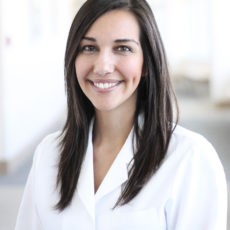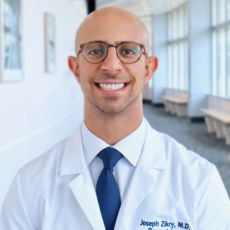Acne

Overview
Acne Overview
Many factors can cause acne, such as hair follicles plugged by oil and dead skin cells, bacteria on the skin causing inflammation, and hormonal changes.
Acne is the most common skin disease, affecting 85% of 12 – 24-year-olds. Anyone can get it, but it is especially prevalent among those going through puberty, adolescents and teenagers. Usually found on the face, neck, chest, back and shoulders, acne can often cause pain and embarrassment. While it can be a chronic condition, a dermatologist can effectively treat it.
Besides young people, those at the highest risk of developing acne include women affected by hormonal fluctuations such as their menstrual cycle, pregnancy, use of birth control or stage of menopause.
Some causes of acne include:
- Using poor quality skincare products and cleansers or the wrong type of products for your skin type
- Certain foods
- Certain health conditions such as polycystic ovary syndrome (PCOS)
- Certain medications such as lithium, androgens or corticosteroids
- Genetics, which can affect things like the size of your pores (larger pores may be more susceptible to acne)
Symptoms
Acne Symptoms
There are six types of acne, with pimples, whiteheads and blackheads being the most common. Look for the following symptoms for each:
Diagnosis
Acne Diagnosis
A dermatologist is the best type of doctor to diagnose and treat any skin condition, and the first step toward a diagnosis is a doctor’s examination. Your doctor will ask about your medical history and your family’s medical history and examine your skin. Typically, no other tests are needed to diagnose acne.
Treatments
Acne Treatments
Topical Medicines
Retinoids and similar drugs
Medicated creams or gels that contain tretinoin or retinoic acids work well for moderate acne. This type of medication works well in preventing hair follicles from getting plugged with dead skin cells, dirt and oils.
Antibiotics
If skin bacteria causes acne, antibiotics can help kill the bacteria and reduce redness and inflammation.
Azelaic Acid and Salicylic Acid
Azelaic acid occurs naturally and is produced by yeast. It has antibacterial properties and may be a good option while pregnant or breastfeeding.
Dapsone
Your doctor may prescribe Dapsone in case of inflammatory acne.
Oral Medicines
Antibiotics
If you have moderate to severe acne, you may need an antibiotic to reduce bacteria.
Oral Contraceptives
The FDA has approved four oral contraceptives for treating acne in women. These products are effective when hormonal changes cause acne.
Anti-Androgen Agents
Spironolactone is an anti-androgen drug that blocks androgen hormones affecting the oil-producing glands.
Isotretinoin
Derived from vitamin A, Isotretinoin may be effective for moderate to severe acne when other treatments don’t work.
Therapies
The following therapies may be used alone or in combination with other drug treatments.
Light Therapy
Different light colors affect the skin in different ways. Blue and red light are most effective on inflammatory acne, such as pimples (pustules) and cystic lesions.
Drainage and Extraction
Although your cosmetologist may offer drainage and extractions during your facial, it is best to leave drainage and extractions to your dermatologist, who is specially trained in these procedures.
Steroid Injection
A steroid injection can effectively provide a rapid reduction in pain and improvement in appearance when treating nodular and cystic lesions.
Specialists

